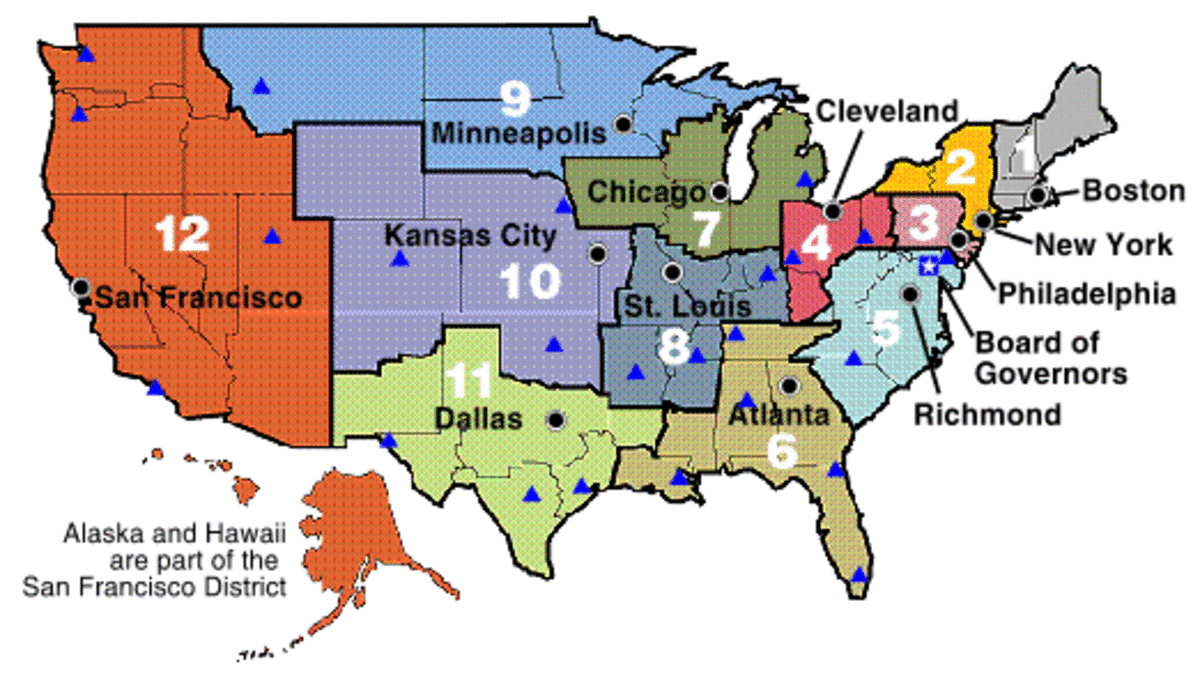Bangladesh Top News
Bangladesh Sick Industries want help
A press conference was held, chaired by the Bangladesh Sick Industries Association president. Business leaders including Abdul Matin, Rahim Ullah, Shahidullah, Rashed Akhter Chowdhury, Syed Ahsan Habib were present.
In this conference, BSIA requested Bangladesh government to support the industries in solving their problem with banks and financial institutions which they are having for over ten long years. They have also asked the government to settle the present problems between the Arthorin Rin Adalat, banks and financial institutions and the sick industrialists.
At the conference, the president of BSIA, Chaudhary Muhammad Ishhaq said that instead of treating them as specific sick industry, the financial institutions are treating them as loan deadbeat. For the open market policy and uneven competition all over the world, many entrepreneurs have become sick. They could not keep their businesses competitive with the other business of the world.
The president also said that the finance minister had allocated Taka 50 billion as a budget for the 2009-10 fiscal as incentive to sort out the problems of the sick industries. With that money, the government with special consideration has given the sick industries loans and interests. But the financial institutions created new problems by not returning the mortgage certificates to the sick industrialists. He also added that the government can save owners of the sick industries by issuing the administrator’s orders. He also demanded to shut off the sick industries from the Bangladesh Bank’s credit information bureau and to provide them ‘ NO objection certificate’ so that they can start to contribute in the national economy again.
One of the leader, Shahidullah, said that instead of the government’s orders, the banks and financial institutions are not cooperating in solving the problem which is continuing for last twenty years. He also added that it he sick industries’ problems are not solved; the banks will not be financially benefited.
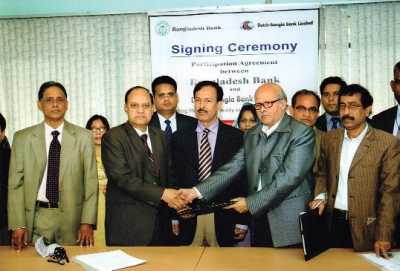
Bangladesh Can Become Hub of a New Silk Road
The US high commissioner in Bangladesh Dan Mozena envisions Bangladesh as a new regional hub which connects the Pan Asian countries. If Bangladesh connects itself to the regional network, it will be sitting in the middle of Asia connecting Afghanistan, India, Pakistan, Nepal, Bhutan, Myanmar and China. Dan Mozena also asked the government for a fair investigation on the numbers of personnel going missing. He has asked the government to respect the integrity, effectiveness and the independence of Grameen Bank.
China Loan Blow to Bangladeshi Private Shipowners
Private shipping companies of Bangladesh have burst out in anger by the deal between Bangladesh Shipping Corporation and China where China gives BSC a multimillion dollar loan to buy six new ships. The private shipping companies are worried that because of this deal foreign investors will lean more towards BSC because of lower costs. BSC will also be able to penetrate routes the private ships weren’t allowed to enter.
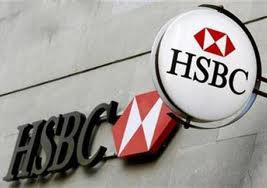
HSBC initiates to close a Islami Bank Bangladesh's Account
Permanent Subcommittee on Investigations of the US Senate, which is a congressional watchdog panel, in a recent investigation found owners of financial institutions to have links with terror financing.
The report by US Senate exposed the failure of HSBC's internal governance in controlling suspect funds, and in the due process Islami Bank Bangladesh came into public eye. In relation to the finding they asked British based banking giant HSBC to close one of Islami Bank Bangladesh's accounts with them by the end of August.
Islami Bank however denied that it had links with terror financing. Mr. Mannan, Managing Director of Islami Bank Bangladesh said that the bank received a letter from HSBC issued in July for closing one of their accounts. He also said that the bank has over 200 corresponding relations with other banks and therefore closing one account with HSBC would not affect the bank. He also added that foreign transactions would also not be affected since HSBC only accounts for 1 percent of its total foreign transactions.
Islami Bank Bangladesh has three accounts with HSBC in Karachi, Mumbai and USA. The bank after receiving the letter from HSBC asked HSBC to close the other two accounts as well. Mr. Mannan said that many foreign banks inquired about their stance on the US report and were pleased with the clarification they provided, so were the banks that inquired from the Bangladesh Bank.
Bangladesh Cancels Licenses of 6,000 Charities
After finding out that almost 6,000 charity based organizations have collapsed or changed their field of work, the government of Bangladesh has revoked the licenses of these NGOs. Some has praised this step and some has criticized it by saying that it is just the government’s attempt to seize control over civic society. The government has also clashed with Nobel laureate Dr. Muhammad Yunus in the recent past.
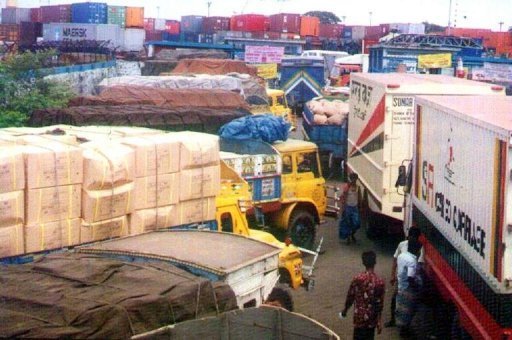
Bangladesh Garments Exports Rising Up
Bangladesh is expanding their readymade garments market. In the month of July 2012, almost $2 billion worth of readymade garments were exported. This is a 5.2% rise from July of 2011. But the statistics was not clear about where these garments were exported.
President of Bangladesh Garment Manufacturers and Exporters Association (BGMEA), Mr. Shafiul Islam, stated that Bangladesh is expanding their market to India, Russia, Brazil, South Africa and Japan. He also said that they are looking for new markets as the demand from recession hit western countries has been really low.
In the last few years, the garment industry of Bangladesh has hit a huge boom as they offer lower cost than the garment industries of China. This is why most westerners have moved towards Bangladesh from China. Almost 70% of exported garments from Bangladesh go to United States and Europe.
The low labour cost of Bangladesh attracted clothing and apparel chains from all over the world. Highly known international brands like Wal-Mart, Tesco, Carrefour, JC Penney, Marks & Spencer, H&M and Kohl’s get their product made in Bangladesh.
Bangladesh resisted the global recession
Compared to other developing countries, Bangladesh has done well in resisting the global recession. In 2012, its economic conditions are not at the best, not not in a bad shape either.
Standard & Poor's, a rating agency based in USA, in April 2010 awarded a BB to Bangladesh which among other South Asian countries was well over Sri Lanka, Nepal and Pakistan. Bangladesh, however, is still a developing nation. The continuous efforts, both domestic and international, have been made to improve its economic and demographic prospects. The dependency on foreign grant and loan for its annual budget decreased from 85% in 1988 to 2% in 2010.
In 2010 the per capita income of Bangladesh was US$ 641 as compared to the world average of US$ 8,985. However, if purchasing power parity (PPP) is taken into consideration, the economy of Bangladesh stands at US$257 billion and is the 44th largest.
Bangladesh was well known for its jute which once was its economic engine. During the World War II and late 1940s, the share of jute market peaked at 80%, which was 70% during early 1970s. Jute industry faded when polypropylene products hit the world market and considerably substituted jute products. Good amount of mango, onion, mustard, potato, rice and tea are grown in Bangladesh. According to FAOSTAT Bangladesh is the 2nd largest producer for jute , 4th for rice, 5th for tropical fruit, 9th for mango, 11th for potato and tea, 16th for pineapple and onion and 17th for banana.
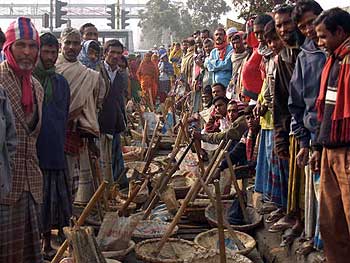
Bangladesh Facing Disaster Risks
The recent Natural Hazard Risk Atlas 2011 report revealed that Bangladesh is the most disaster prone country in the world right now. This report published by the British risk consultancy firm Maplecroft is a wakeup call for the government of Bangladesh. According to the report Bangladesh falls under the “extreme risk” category due to its weak infrastructure and poor government monitoring. These two factors combined make Bangladesh extremely vulnerable to deal with the after effects of a horrific disaster.
In spite of the fact that Bangladesh has been taking preparations to deal with natural calamities for ages, the country still struggles to deal with the most common disaster of the area- flash flooding. A small example can be given regarding this situation, the cyclone Aila struck Bangladesh almost three years ago but the government still has not been able to recover the damages entirely. Bangladesh is not ready to deal with a full scale Earthquake yet and the recent cluster of small magnitude earthquakes are not a good sign for the country. The densely populated capital Dhaka will suffer horribly if a large scale earthquake occurs. Most building in the city are not up to date with the mandatory rules provided by RAJUK. Almost 250,000 buildings of Dhaka, Chittagong and Sylhet are vulnerable to earthquake. The government needs to train at least 62,500 volunteers to deal with disastrous situations, equip the fire and civil defense service with state of the art equipments to be able to deal with earthquakes properly.
It is obvious to even the common people of Bangladesh that the Weather Department of the country needs a lot of improvement. The forecasting system of the Weather Department needs to be modernized. Every builder has to follow the building code provided by RAJUK. If these steps are not taken, Bangladesh will face a lot of trouble coping up with the aftermath of a disaster.

Plastic Industry to Boom Within 2020
Bangladesh is slowly moving towards becoming one of the big shots in the global plastic industry. The country is planning to take their annual turnover up to $2 billion within the next three years and to $4billion within 2020. This was reported in the United Nation’s Economic and Social Commission for Asia and the Pacific.
This report also states that it is only possible if the government can focus on three very important issues; waste management and recycling facilities, infrastructural improvement and skill development of the workers. It also asked the government to set up a small industry zone designated to the plastic industry and provide them with amenities such as constant water and power supply. The report encouraged corporate groups of Bangladesh to invest more in this sector.
The biggest advantage Bangladesh has in this case is their huge population. Every day people are throwing out hundreds of thousands of plastic products. So Bangladesh will never run out of the raw materials. Currently, annual turnover of the plastic industry is approximately $1 billion. This industry contains almost 2 million people working actively or passively and more than 3000 manufacturing units.
ESCAP reports Bangladesh as one of the lowest plastic consuming countries in the world. Per capita consumption of plastic is just 2kg against the global average of 80kg. ESCAP has estimated that as the economy of Bangladesh grows, the consumption of plastic will also grow. The plastic recycling industry is growing almost every day. About 300 small industries are associated with plastic recycling and recycling almost 138 tonnes of wasted plastic products daily. Easy access to river water and moderately low transportation cost is playing as a catalyst in booming this industry.
The ESCAP report concluded by saying Bangladesh has a lot of potential in the plastic industry especially because of it easy availability to raw materials. But this untapped potential can be developed only if the government can make a proper plan, improve the infrastructure of the industry and train the personnel. If that happens, then Bangladesh will soon become one of the biggest names in this industry.

